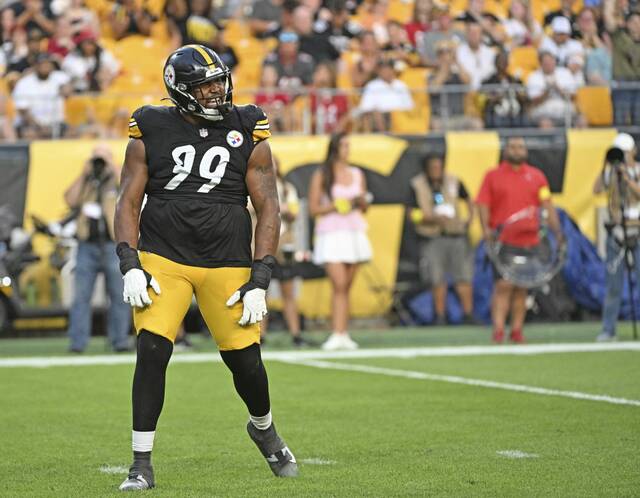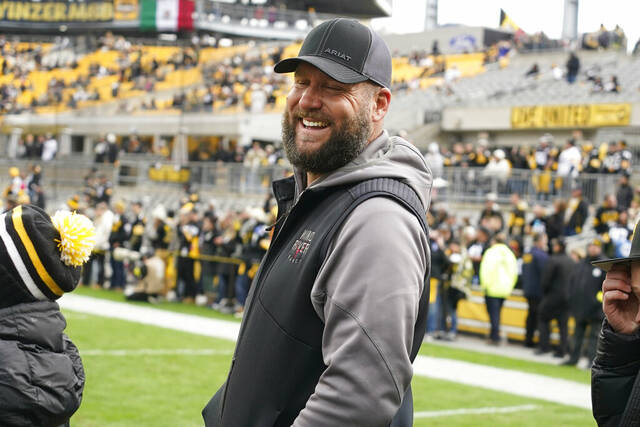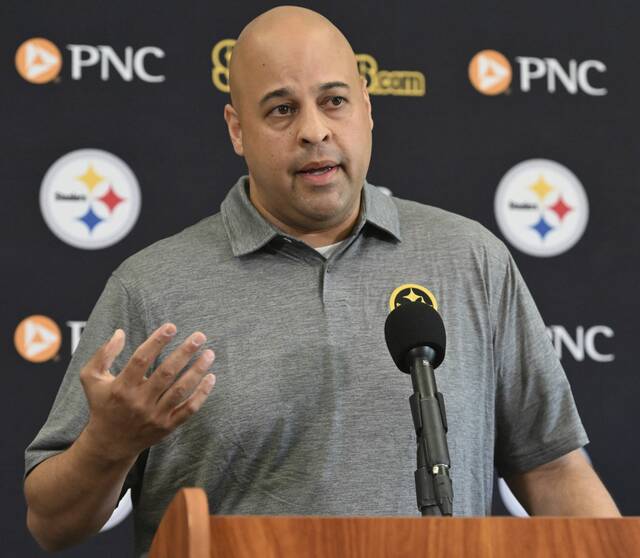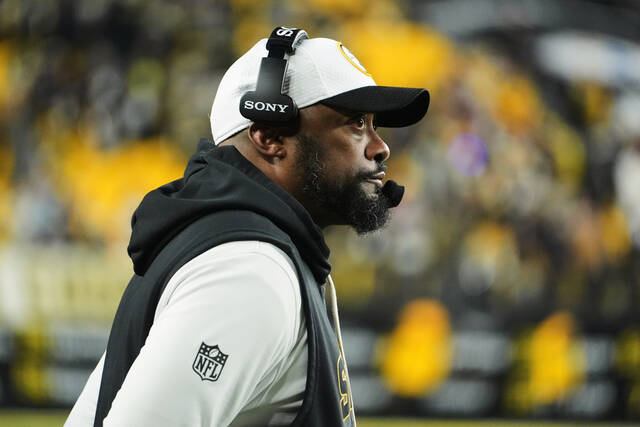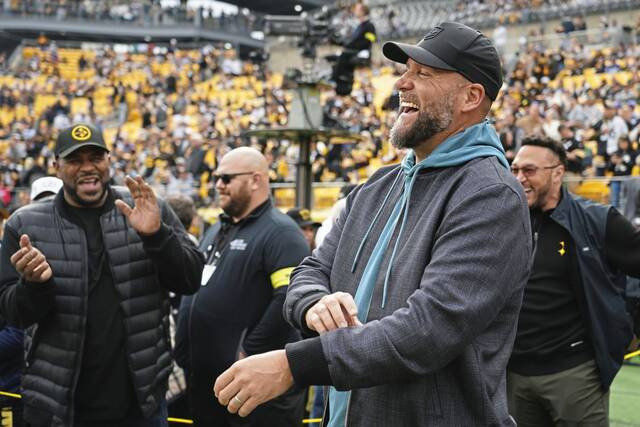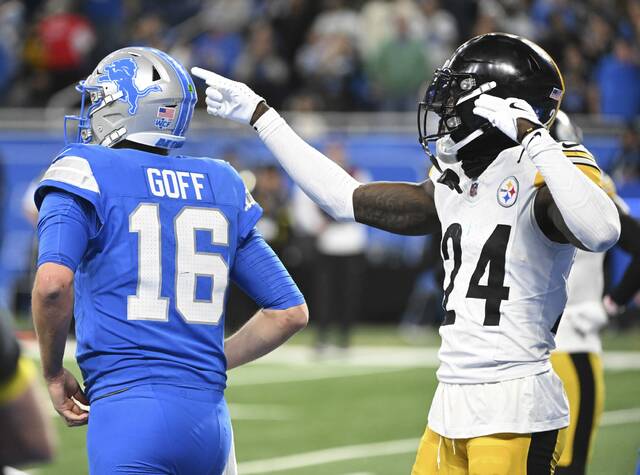On Sunday, a group of NFL running backs did what a lot of us did during the height of the coronavirus pandemic.
They hopped on Zoom with each other and complained.
The only difference is, these running backs are griping over how many more millions of dollars they should be making, whereas a lot of folks in 2020 were fretting about when — or if — their paychecks would be coming back at all.
However, based on what one of the running back participants on that call said, it appears they got to roughly the same endpoint as many of those other conversations did three years ago: “Pfft! It stinks, but what are we gonna do about it?”
“Right now, there’s really nothing we can do,” Cleveland’s Nick Chubb said after the call via ESPN.com. “We’re kind of handcuffed with the situation.”
In recent weeks, a lot of the NFL’s running backs have voiced frustration about what they deem to be a pay scale that is biased against their position. It’s a bubbling topic in the wake of Tony Pollard, Saquon Barkley and Josh Jacobs failing to get long-term deals and being forced to play on a franchise tag that’s only (only?) $10 million for one year of play.
Update: On Tuesday morning, Barkley signed a modified contract for a one-year deal worth up to $11 million and a $2 million signing bonus, according to NFL Network’s Ian Rapoport.
The likes of Chubb, Austin Ekeler, Christian McCaffrey, Derrick Henry and Jacobs have all grumbled about teams grinding running backs into the ground during their first contract, then franchise-tagging them or just refusing to sign them all together so they can be replaced with younger, cheaper talent.
That’s a bit ironic since Chubb, McCaffrey and Henry did get significant second contracts, and Ekeler (an undrafted player) got his chance to shine when Melvin Gordon was in a contract dispute with the Los Angeles Chargers.
Current Steelers starter Najee Harris was reportedly on the call and has been vocal about the topic on social media.
At this point , just take the RB position out the game then . The ones that want to be great & work as hard as they can to give their all to an organization , just seems like it don’t even matter . I’m with every RB that’s fighting to get what they deserve . https://t.co/OgvBWZCKvn
— Derrick Henry (@KingHenry_2) July 17, 2023
“We’re the only position that our production hurts us the most,” Chubb said. “If we go out there and run 2,000 yards with so many carries, the next year they’re going to say, you’re probably worn down. It’s tough. … It hurts us at the end of the day.”
Chubb is right about that. But he was also right about that other point in his previous quote: “There’s really nothing we can do.”
Chubb and his RB brethren need to focus on that part of his quote. Because there really is nothing they can do. For now.
Some have suggested that running backs all over football just withhold their services in the 2024 offseason or hold out this year. That’s stupid. Then there will be 32 Austin Ekelers across the league this year. Because whether it’s second stringers like Jaylen Warren in Pittsburgh, or someone even more obscure, the NFL will find enough running backs to fill the void. As an individual, Ekeler, and as a team, the Chiefs and Rams in recent years, have proven that theory to be true.
More sports
• Pirates' Tucupita Marcano injures knee trying to avoid tag, leaves game against Padres• Longtime Riverhounds, Quaker Valley soccer coach Gene Klein dies after battle with brain cancer
• Armed with new contract, Steelers OLB Alex Highsmith believes 'best ball is in front of me'
Some have said to create a second union for the running backs. That’s dumb too. The NFL isn’t going to do two collective bargaining agreements with two player unions concurrently. And oh, by the way, the current deal doesn’t expire until 2030 anyway.
That leads to the next proposed theory: Restructure the franchise tag system so that it’s just “skill position players” on offense along with quarterbacks and offensive linemen. That way, running backs make as much as wide receivers and/or tight ends. That’d be similar to the offensive line in the sense that centers and guards get franchised at the same level as tackles.
Great idea initially, until you think about it and realize that the owners would be even less inclined to franchise some running backs. And they might just get spun into what has become a desert-like running back free agency void more quickly. Plus, that would then require the NFL Players Association to hold strong on a franchise-tag modification demand. That’s something the player-friendly national media constantly says will happen, then rarely does.
One floated opinion had been to cast aside a league-wide bonus pool of incentive money — or ramp up the current “
Wonderful. Think the owners are going to give up that slice of revenue without some sort of giveback? If so, what are all the other players willing to give up?
Still, another suggestion has been to slot more rookie money or move up the fifth-year option to a fourth-year option for running backs specifically. That would make free-agency happen more quickly for them, and at least give them a path to more cash in their entry-level deals.
Fine. Then, if that happens, you’ll see even fewer running backs taken in the first round.
See where I’m going with this?
I’m sure some running backs, or those that sympathize with them, rolled their eyes when I made that wisecrack about the RB franchise tag being “only” $10 million, as if I’m reducing the macroeconomics of the multi-billion dollar NFL and equating it to what John Q. Public takes home after taxes twice a month.
Maybe I shouldn’t. But one basic economic principle still applies on the macro level for the NFL running backs: supply and demand.
There are plenty of guys capable of running through NFL-sized holes on the offensive line. And if they can’t, then their quarterback will just throw more often. Supply is high for NFL ball carriers. Demand to pay them significant sums of money is low.
Say it again, Nick Chubb. “There’s really nothing we can do.”
At least not for the next seven years before the CBA expires anyway.




